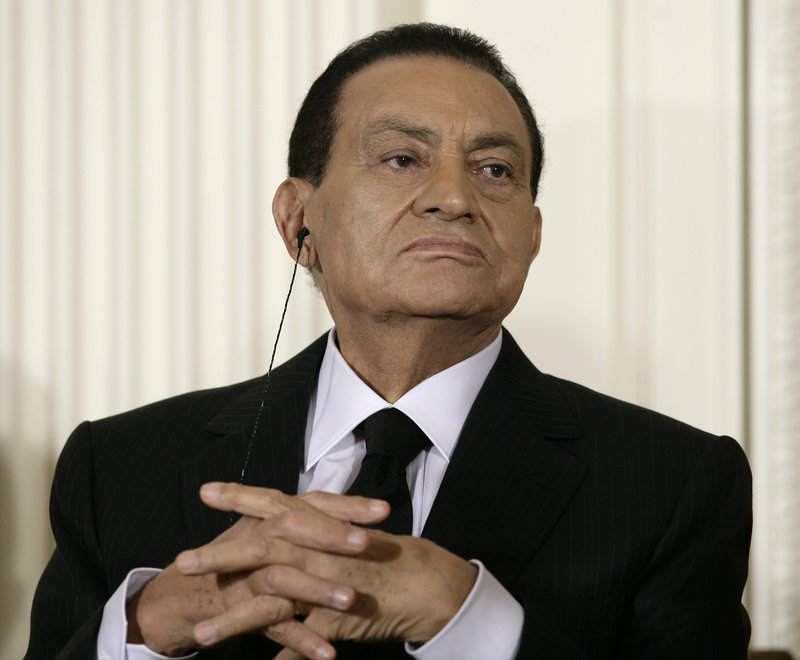CAIRO — Hosni Mubarak, 83 years old and ailing, goes on trial today on charges of corruption and ordering the killing of protesters during the 18-day uprising that toppled him, and many Egyptians are celebrating the chance at retribution against a longtime authoritarian ruler.
But they also question whether the trial will truly break with the injustices of the past. Some worry that Egypt’s new military rulers are touting the trial as proof that democratic reform has been accomplished, even as activists argue that far deeper change is still needed.
“I am a little worried that if Mubarak is tried and convicted people will take that to be the end of the revolution. They will say that the revolution has realized its goals. This should not be the case,” said Tareq Shalaby, a 27-year-old social media consultant who was among the hundreds of thousands of protesters who thronged Cairo’s Tahrir Square and other cities during the uprising.
The prosecution of the ousted president is an unprecedented moment in the Arab world, the first time a modern Mideast leader has been put on trial fully by his own people.
The closest event to it was former Iraqi leader Saddam Hussein’s trial, but his capture came at the hands of U.S. troops in 2003 and his special tribunal was set up with extensive consultation with American officials and international experts. Mubarak, who ruled with unquestioned power for 29 years, is expected to appear during the trial sitting in a cage set up for him and his co-defendants, including his two sons and his former interior minister. The charges could bring a death sentence, traditionally carried out by hanging.
In an ironic twist, the courtroom has been set up in what was once the Mubarak Police Academy — one of the multiple security, military and other civil buildings named after the president, though since his Feb. 11 ouster his name has been dropped. Security will be tight, with barbed wire and hundreds of troops around the compound.
Efforts have been made to ensure spectators in the court can’t get close enough to the defendants’ case to yell and throw objects at them, the Interior Ministry said.
Copy the Story Link
Send questions/comments to the editors.



Success. Please wait for the page to reload. If the page does not reload within 5 seconds, please refresh the page.
Enter your email and password to access comments.
Hi, to comment on stories you must . This profile is in addition to your subscription and website login.
Already have a commenting profile? .
Invalid username/password.
Please check your email to confirm and complete your registration.
Only subscribers are eligible to post comments. Please subscribe or login first for digital access. Here’s why.
Use the form below to reset your password. When you've submitted your account email, we will send an email with a reset code.